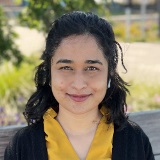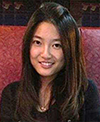講演者
Filter by:
Kavitha Akula, PhD, Principal Scientist, Bristol Myers Squibb Co.
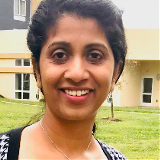
Dr. Kavitha Akula is currently a Principal Scientist at Bristol-Myers Squibb (BMS) in the Non-clinical Disposition and Bioanalysis Group. Kavitha joined BMS in 2019 as Research Investigator-II with about five years of experience in regulated bioanalysis from different contract research organizations (CRO). She received her PhD from Temple University, Philadelphia in Organic Chemistry in 2017. Kavitha has extensive experience in regulate bioanalysis of large molecule drugs and new treatment modalities in support of PK and Immunogenicity. She recently took co-lead position in the Early Career Bioanalytical Scientists (ECBS) sub-team in AAPS.
Jan Amstrup, PhD, Principal Scientist, Novo Nordisk AS

Jan Amstrup is a Principal Scientist in the department of Bioanalysis, CMC Development at Novo Nordisk. His main responsibilities are on the development of potency and ELISA assays for early-stage projects (Phase I-II). In the department, Jan has been supervising several interns, as well as master students and is involved in both transfer of assays from Research to CMC and from CMC to QC labs prior to launch. Jan has more than 20 years of experience in the pharmaceutical industry and 6 years in academia. Jan has served as a member of a USP expert committee, and as a member of several expert panels. Jan holds a PhD in Molecular Biology from University of Copenhagen and a M.Sc. in Biochemistry from University of Copenhagen.
Sonia Connaughton, PhD, Associate Director, Sanofi
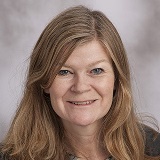
Sonia Connaughton received her PhD in Pharmacology from the University College Dublin, Ireland. Following her postdoctoral studies at St. Louis University, she spent several years at Cambridge NeuroScience and Applied Biosystems, where she focused on the development of assays to monitor ion channels and modulation of G-coupled Protein Receptors. At ImmunoGen, her efforts focused on the development of bioassays for lot release and stability testing for Antibody and Probody-Drug Conjugates. At Sanofi, Sonia leads a bioassay group focused on developing and implementing bioassays to support early and late-stage development for a wide variety of modalities including Monoclonal, Bi and Tri-specific Antibodies, Enzyme replacement therapies and Gene Therapy.
Dhanvanthri S. Deevi, Associate Principal Scientist, Merck
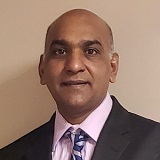
Dhanvanthri S. Deevi is currently working as Associate Principal Scientist leading cell based neutralizing antibody assay development at Merck, Immunogenicity group within the Bioanalytical division. He is with 25 years of industrial research experience working at Center for Cellular and Molecular Biology and Dr. Reddy’s laboratories at India, Imclone Systems Inc., Eli Lilly & Co, Pfizer Center for Therapeutic Innovations and currently at Merck, on multiple assay development platforms in the areas of early discover, MOA studies, potency assays and immunogenicity cell based assays.
Sanjay Dholakiya, PhD, Principal Scientist, Bristol-Myers Squibb
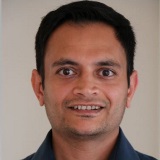
Sanjay Dholakiya is a Principal Scientist in the department of Clinical Pharmacology, Pharmacometrics, Disposition & Bioanalysis at Bristol-Myers Squibb (BMS), where he leads the regulated bioanalytical support for multiple programs in oncology field. Prior to joining BMS, he held positions at Vir Biotechnology, LabCorp Drug Development, and Boehringer-Ingelheim which have given him broad experience in the regulated nonclinical and clinical bioanalysis and immunogenicity field. Sanjay received his Ph.D. in Pharmacology from St. John’s University, New York, USA. He has authored or co-authored multiple publications and currently serves as a reviewer in several peer-reviewed journals.
Kate Getliffe, PhD, Cell Biologist, Cell-Based Bioassay and Potency Assay Expert, Independant Consultant

I have fifteen years’ experience of drug discovery and development in biotech, CRO, and large pharma companies and four years’ experience of academic research into the roles of telomeres and telomerase in inflammatory disease and cancer. I also hold a PhD in Cell Biology from the University of Manchester. During all of these roles I have been involved in bioassay development either as a hands-on scientist or a more supervisory principal scientist. Bioassays I have developed and overseen the development of include: virus infectivity assays, cell-based potency assays, and ELISA expression assays. Most recently these have been used for product release, formulation development, process development, and stability testing. I am also experienced in the use of Design of Experiments (DoE) for the optimisation of cell handling methods, cell based assays, and ELISAs.
Boris Gorovits, PhD, Vice President, Bioanalytical & Non-Clinical Biomarkers, Sana Biotechnology

Boris Gorovits is a VP of Bioanalytical & Non-Clinical Biomarkers at Sana Biotechnology. Boris earned a Ph.D. in Enzymology from the Moscow State University and later completed postdoctoral research studies in Protein biophysics at the Medical Center, the University of Texas at San Antonio, TX. In 2000, Boris joined Wyeth Research (later Pfizer Inc.) to lead a Bioanalytical group responsible for many aspects of the Regulated and Non-Regulated Bioanalytical support for pan-Pfizer Biotherapeutic portfolio. Boris co-chaired Pfizer internal Immunogenicity Expert Working Group responsible for review of the biotherapeutic immunogenicity risk assessment and mitigation strategies. Later, Boris transitioned to Sana Biotechnology where he continues to be involved in development of various gene therapy and cell therapy modalities. Boris has been actively involved in industry discussions focusing on PK and immunogenicity assessment bioanalytical support of various modalities, including mAbs, bispecific antibodies, antibody-drug conjugates, gene therapy, and CAR Ts.
Soumi Gupta, PhD, Senior Director, Head of Immunogenicity Assessment, BioMarin Pharmaceutical

Soumi Gupta received her Ph.D. in Microbiology from University of California, Davis in 2003, where the focus of her research was aimed at furthering our understanding of the immune correlates of protection towards a successful AIDS vaccine. She pursued post-doctoral training in Immunology at Chiron Corporation where she investigated anti-HIV T and B cell-mediated responses following mucosal immunization with alphavirus-based replicon particles encoding for HIV-Gag, Pol and Env. Following her post-doctoral training, she worked at Monogram Biosciences as a scientist in research and development, developing assays to characterize genotypic and phenotypic resistance to HIV antivirals. Soumi joined BioMarin in February of 2015 as a Director in Immunogenicity Assessment where she provides immunologic expertise to drug programs across developmental stages and develops immunogenicity and safety strategies for novel biologic therapeutics, including enzyme substitution therapies and AAV-mediated gene therapies.
Michael Gutknecht, PhD, Principal Scientist II, Novartis Pharma AG

Michael is a trained immunologist specialized in immunogenicity profiling with over 6 years of expertise in immunogenicity risk assessment of biologics. He joined Novartis in 2017, applying his expertise to improve various immunogenicity profiling assays. As part of the cross-functional Immunogenicity Hub, Michaels team supports biotherapeutic projects by addressing mechanistic questions and providing Immunogenicity profiling utilizing an ever expanding in silico and in vitro assay toolbox.
Robert Hamilton, PhD, D.ABMLI, Professor, Medicine & Pathology, Clinical Immunology & Allergy, Johns Hopkins University
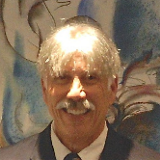
Robert G. Hamilton, Ph.D., D.ABMLI is a professor of medicine and pathology and Director of the Dermatology, Allergy and Clinical Immunology Reference Laboratory at the Johns Hopkins University School of Medicine. He teaches, performs research and directs a federally-licensed clinical immunology laboratory that specializes in the diagnosis of Type-1 hypersensitivity reactions in humans. Over the past 38 years at Johns Hopkins, he has published over 250 peer reviewed original papers and review articles and 36 chapters in textbooks on the topic of the diagnosis and management of human allergic disease. For the past 15 years, he has served as coordinator for the College of American Pathologist’s Diagnostic Allergy Inter-laboratory Proficiency Survey which monitors ~150 North American laboratories performing diagnostic allergy testing.
Kristina Howard, Principal Investigator, Division of Applied Regulatory Science (DARS), CDER, FDA

Kristina Howard received her veterinary degree from the Virginia-Maryland Regional College of Veterinary Medicine and her Doctorate in immunology from North Carolina State University. She joined the FDA in 2010 and is currently a principal investigator in the Division of Applied Regulatory Science, Center for Drug Evaluation and Research of the United States Food and Drug Administration. Her research focuses on developing and improving in vitro and in vivo models to better predict the safety of small and large molecule drug products in humans.
Zicheng Hu, PhD, Principal Scientist, Genentech

Zicheng Hu is a Principal Scientist in the Department of BioAnalytical Sciences (BAS) at Genentech. He studied T cell immunology and received his PhD from the University of Texas at Austin. He received postdoctoral training at the University of California San Francisco and conducted research in computational immunology. Zicheng joined Genentech in 2022. He leads data mining efforts to understand the anti-drug antibody responses and develops predictive models to evaluate the immunogenicity risk of protein-based therapeutics.
Jianfang Hu, Senior Director, Pfizer
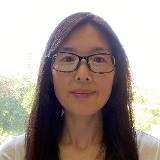
Jianfang is a senior director supporting development and validation of clinical assays at Pfizer. Prior joining Pfizer, she served as a CMC statistician in vaccine commercialization and manufacturing for more than twelve years. During her career, she has developed expertise in many areas including specification and comparability acceptance criteria setting, design of experiment, release models, and complex manufacturing investigations. Jianfang is highly familiar with regulatory guidance and international standards and passionate to educate and influence regulatory agents’ perspectives through statistical thinking. She has delivered two presentations to China Center of Drug Evaluation on setting comparability limits with positive feedback. She and her team have contributed to many successful filings on manufacture comparability at Merck.
Susan Irvin, PhD, Staff Scientist, Bioanalytical Strategy, Regeneron

Susan Irvin received her PhD from North Carolina State University, where she built a foundation in virology and molecular biology. Her post-doctoral fellowship at Albert Einstein College of Medicine also focused on virology with an emphasis on human health and immunology. In 2015, she brought her passion for infectious disease prevention and treatment to Regeneron. She is now a Staff Scientist in the Bioanalytical Strategy Group where she supports clinical studies in infectious disease and oncology from a bioanalytical perspective for PK, ADA, and NAb.
Andrew Isidoridy, PhD, Immunology Sales Specialist, Sales, ProImmune, Inc.
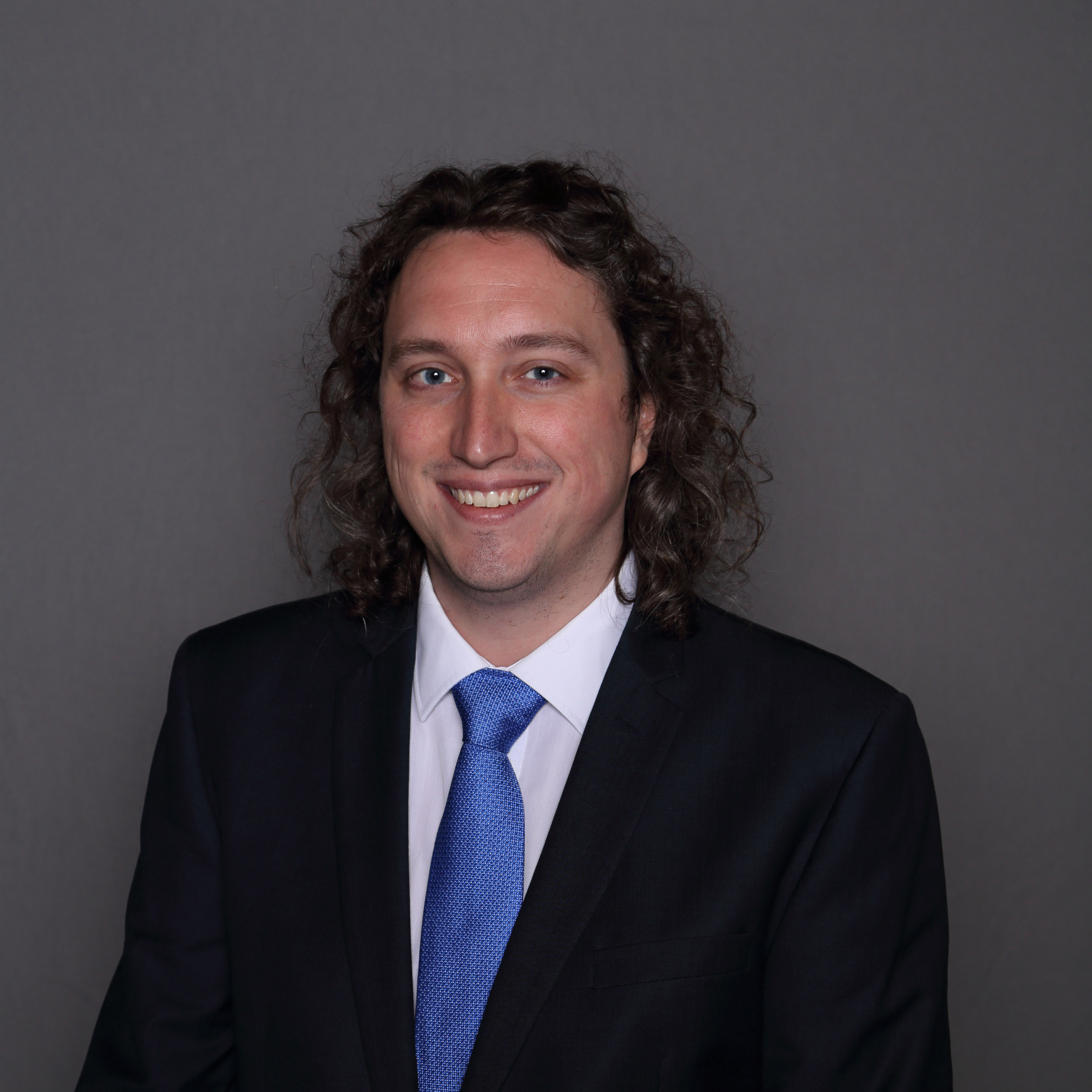
Andrew earned his PhD in molecular biology from the University at Albany under the direction of Professor Robert Osuna, identifying and characterizing post translational modifications of the transcription factor DksA in E. coli. He joined ProImmune in 2019 after completing his doctorate and currently works on providing innovative solutions for clients that deeply improve our understanding of both desired and unwanted immune responses.
Darshana Jani, PhD, Senior Director, Preclinical and Clinical Bioanalytical Sciences, Clinical Biomarkers, Moderna

Darshana Jani is Head of Global Bioanalytical Sciences at ModernaTx. Prior to that, she served as a Director at Agenus and Scientific Associate Director at Pfizer, Cambridge, MA, USA, where her role was to serve as scientific and technical lead for both CROs and internal teams for development, validation, and application of bioanalytical and biomarker assays to comply with scientific and regulatory requirements. She has over 25 years of experience in supporting preclinical to clinical studies holding positions with Sanofi, MedImmune, Biogen, and Pfizer. She has risen from the ranks, at the outset developing and applying bioanalytical methods, while assuming numerous responsibilities germane to regulatory compliance of the validation and application of group procedure. She has also guided bioanalytical lab groups held responsible for overseeing any and all phases of drug recovery and development; a task which incorporated product characterization, potency determination, immunogenicity testing, as well as surrogate biomarker assay development, validation, and sample testing. Lastly, she has published several recommendation white papers with industry, academic, and regulatory peers in the area of biomarkers, as well as immunogenicity.
Louise Joergensen, PhD, Principal Scientist, Novo Nordisk
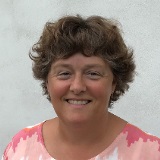
Louise Jorgensen, PhD, Principal Scientist, Department of Non-clinical and Clinical Assay Sciences, Novo Nordisk A/S. Louise Jorgensen has a PhD from 2007 in malaria, molecular biology, and immunology from University of Copenhagen. Since 2012 she has worked with immunogenicity assessment at Novo Nordisk, where she is responsible for immunogenicity risk assessment, assay development and validation supporting both non-clinical and clinical studies, in addition to sample analysis from non-clinical and clinical studies in projects across the Novo Nordisk portfolio, spanning from early development to submission.
Lynn Kamen, PhD, Scientific Officer, Executive Director, BioAgilytix

Lynn Kamen is a Scientific Officer at BioAgilytix. She earned her PhD in Immunology at the University of Michigan and completed a postdoctoral fellowship in immunology at the University of California, San Francisco. Lynn has over a decade of experience working in drug development, from early target discovery through clinical development for both large and small molecules at several companies including Portola Pharmaceuticals, and Alector. More recently, Lynn was a principal scientist at Genentech where she supported the in vitro biological characterization of large molecules and lead the development of immunogenicity assays including ADA, NAb and immunogenicity risk ranking assays. She is co-lead of the AAPS NAber working group and member of the AAPS NAb drug tolerance sub-team.
Natalia Kozhemyakina, PhD, Head, Bioassay Department, JSC Biocad

PhD. Head of Bioassay Department at Biocad, Russian Leading Innovative Biotechnology Company. The department is responsible for selection the bioassay strategies and development, validation and transfer bioassays including potency assays in support of drug development pipeline.
Alexander Kozhich, PhD, Director, Bristol Myers Squibb
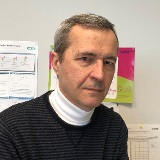
Alex Kozhich has over 20 years of experience in the pharmaceutical industry. For the past 11 years Alex has worked at Bristol Myers Squibb, in the Nonclinical Disposition and Bioanalysis department, and currently is a Scientific Direcor with the responsibility of providing exploratory bioanalytical support to large molecule discovery and development projects. Previously, Alex was early discovery scientist at MedImmune and also worked at a couple of smaller diagnostic companies. He has authored over 100 papers and/or poster presentations as primary or co-author and presented at scientific conferences across the United States, and his research interests include bioanalytical methods for biomolecules, peptide and protein biochemistry, and immunology. Alex received his PhD in Organic Chemistry from Shemyakin Institute of Bioorganic Chemistry and completed postdoctoral training in immunology at National Institutes of Health.
Robert Kubiak, PhD, Associate Director, Clinical Pharmacology & Quantitative Pharmacology, AstraZeneca
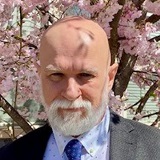
Dr. Robert J. Kubiak earned a doctorate in medicinal chemistry from University of Illinois at Chicago and a master’s degree in biotechnology from Johns Hopkins University. He has extensive experience in development and validation of immunoassays gained at Meso Scale Discovery, PPD, Tandem Labs, and AstraZeneca. Undeterred by the lack of formal statistical training, he managed to make some contributions to development of statistical methods for determination of cut point for immunogenicity assays. Currently he works on interpretation and reporting of immunogenicity results at Clinical Pharmacology and Quantitative Pharmacology department at AstraZeneca, Gaithersburg, MD.
Klaudia Kuranda, PhD, Head of Immunology, Spark Therapeutics, Inc.

Klaudia Kuranda is the Head of Immunology at Spark Therapeutics, part of the Roche Group, an industry leader in gene therapy in Philadelphia, Pennsylvania. Klaudia leads efforts focused on the AAV immunogenicity risk assessment for programs spanning Liver, CNS, and Ocular therapeutic areas, develops strategies to modulate vector immunogenicity using preclinical models and designs novel gene therapy approaches for immune-related disease. Klaudia has been building the immunology capabilities at Spark from the ground up since March 2018. Before joining Spark, Klaudia worked in AAV Gene Therapy Laboratory led by Federico Mingozzi in Paris, France, where she studied immune responses to investigational gene therapy products. In that time, Klaudia has worked closely with gene therapy companies to determine tailored strategies for immunomonitoring in AAV clinical trials. Klaudia Kuranda holds an engineer’s degree in Biotechnology from the Warsaw University of Life Sciences (SGGW) in Poland and a Ph.D. in Microbiology from the National Institute of Applied Sciences (INSA) in France. She is also an active co-leader of ARDAT consortium of 34 international partners from academia, industry, and small/medium enterprises with the aim to advance our knowledge in the field of viral gene/cell therapy and accelerate the development of new treatments for rare diseases.
Daniel Leventhal, PhD, Head of Immunogenicity, Generate Biomedicines
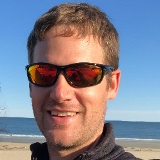
Daniel Leventhal currently serves as Associate Director, Head of Immunogenicity at Generate Biomedicines where he leads a team of scientists focused on prediction, risk assessment, and mitigation of immunogenicity against biotherapeutics. Prior to Generate, Daniel lead immune oncology focused efforts at Synlogic (developing a STING agonist producing engineered bacteria) and Agenus (establishing a TCR engineered cell therapy platform). Daniel received his PhD in Cancer Biology and MS in Translational Sciences from the University of Chicago where he studied the antigenic specificities and antigen presenting cell partners of tumor-infiltrating regulatory T cells.
Tao Liang, PhD, Senior Scientist, Bioanalytical Strategy Group, Regeneron
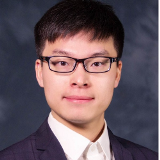
Dr. Tao Liang is a bioanalytical scientist from Regeneron Pharmacueticals. At Regeneron, Dr. Liang served as the principal investigator who manages the PK/ADA/biomarker deliverables to support various stages of clinical development programs. He was previously at Alexion Pharmaceuticals, where he served as the bioanalytical project lead and worked with cross-functional teams. He was responsible for the development and validation of ICP-MS, LC-MS and LBA assays. He received a PhD in Pharmaceutical Sciences from the University of Maryland Baltimore in 2018.
Ang Liu, Director, Clinical Bioanalysis, Daiichi Sankyo

Dr. Ang Liu is currently a Director of Clinical Bioanalysis in the department of Quantitative Clinical Pharmacology at Daiichi Sankyo. Prior to joining Daiichi Sankyo in July, 2021, Ang was a Senior Principal Scientist in the Department of Bioanalytical Sciences at Bristol-Myers Squibb. Ang received her Ph.D. from University of Illinois at Chicago in 2009 and started her industry career since then. Ang has extensive experience in regulated bioanalysis of large-molecule and small-molecule drugs, and new treatment modalities in support of PK and immunogenicity using LC-MS based and LBA based technologies. Ang has had increasing responsibilities throughout her career at Tandem Labs (now LabCorp), Bristol-Myers Squibb, and Daiichi Sankyo. Ang has authored or co-authored a book chapter and over 15 scientific publications in peer-reviewed journals. She also serves as a reviewer of a number of journals. Ang has served on the organizing committee of Applied Pharmaceutical Analysis (APA) Conference since 2016 and she is the Presiding Chair of APA 2022.
Linlin Luo, PhD, Director, Merck

Linlin Luo has worked in the Pharmaceutical Industry for about 15 years focusing in the area of regulated bioanalytical testing of biologic therapeutics. She has been contributing to pharmacokinetic (PK), immunogenicity (IMG), and neutralizing antibody (NAb) assay development and validation, in support of numerous preclinical and clinical studies for many critical programs, such as Opdivo and Yervoy. Linlin is currently a Director at the Regulated Bioanalytical Group of Merck, leading a team of scientists responsible for developing bioanalytical assays to support biotherapeutic development and licensure.
Zifeng Mai, Associate Director, Bioanalytical Sciences, EQRx Inc

As an Associate Director of Bioanalytical Sciences with over a decade of experience in the pharmaceutical industry, I bring a deep understanding and hands-on experience in key areas such as Pharmacokinetics (PK), Immunogenicity (ADA, NAb, cellular immunogenicity), Biomarker, and regulatory filings. Known for my comprehensive approach to problem-solving, my expertise lies in leveraging my deep technical knowledge to drive innovation and deliver results. With a proven track record of success in bioanalytical sciences, I am continually focused on the development and implementation of strategic plans to improve processes, enhance productivity, and support the achievement of organizational goals.
Laurent P. Malherbe, PhD, Research Advisor, Eli Lilly & Co.

Dr. Laurent Malherbe is currently a Research Advisor in the Toxicology department at Eli Lilly. He received his Ph.D. in Immunology from the University of Nice-Sophia Antipolis (France), did his postdoctoral training at the Scripps Research Institute (La Jolla, CA), and worked as an Associate Investigator at the Blood Research Institute (Milwaukee, WI) where his work focused on understanding the cellular and molecular mechanisms regulating antigen-specific CD4 T cell responses. At Lilly, he leads a laboratory responsible for the development of assays to support the preclinical immuno-safety assessment of Lilly’s biotherapeutic products. He has authored over 30 scientific publications and is a member of a multifunctional team responsible for the preclinical immunogenicity risk assessment at Eli Lilly. He is an active member of AAPS and currently serve as the chair of the Immunogenicity Risk Assessment and Mitigation Working Group within the Therapeutic Product Immunogenicity Focus AAPS Community.
Yan Mao, PhD, Senior Principal Scientist, Boehringer Ingelheim Pharmaceuticals
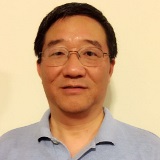
Dr. Yan Mao is currently a Senior Principal Scientist at Bioanalytical Sciences, DMPK, Boehringer Ingelheim Pharmaceuticals, Inc., US, leading a team of scientists providing bioanalytical support for biotherapeutic drug development. He has more than 20 years’ experience in regulated bioanalysis and formerly held positions at Bristol-Myers Squibb, Pacific Northwest National Laboratory, and National Cancer Institute/National Institutes of Health. Dr. Mao received his BA, MS, and Ph.D. in Chemistry from Nanjing University, China.
Ronit Mazor, PhD, Principal Investigator, CBER, FDA
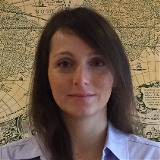
Ronit Mazor did her undergraduate studies in Tel Aviv University in Israel. She performed her PhD in the NIH’s International Graduate Partnership Program, in collaboration with Tel Aviv University. Ronit continued her Post doctoral training in the national cancel institute working on the immunogenicity of recombinant immunotoxins for cancer therapy with Ira Pastan. She then joined the antibody discovery and protein engineering in Medimmune/AstraZeneca in Gaithersburg where she established their cellular and in silico pre-clinical immunogenicity prediction platform. In 2019, Ronit joined the Gene Transfer and Immunogenicity Branch in the FDA as a principal investigator. She is leading a research group studying the interaction between the immune system and gene therapy viral vectors.
Jim McNally, PhD, CSO, BioAgilytix

Dr. McNally has an extensive background in bioanalytical assay development and program leadership spanning nearly 20 years working in the pharmaceutical and biotechnology industry. Prior to joining BioAgilytix, Dr. McNally was Executive Director at CRISPR Therapeutics, where he lead a team of scientists to develop a portfolio of assays to support development of gene-based therapeutic candidates throughout their lifecycle. He has also previously held roles at Genzyme, Pfizer, EMD Serono, and Shire which have given him broad experience in the development of large molecule, gene therapy, and cell therapy biotherapeutics. Dr. McNally is a recognized thought leader in the development and application of bioanalytical methods used in regulatory submissions and is specifically skilled in progression of biotherapeutics from research through clinical development. He has a special interest in the immunogenicity of biotherapeutics and leads an industry-wide working group to address this issue. A key part of his role at BioAgilytix is advising on emerging scientific developments and providing scientific and regulatory guidance. Dr. McNally obtained his B.S. in Biology from Mississippi State University, his Ph.D. Viral Immunology from Louisiana State University School of Medicine in Shreveport, and his Post-Doc in Viral Immunology from University of Massachusetts Medical School.
Brian Meyer, PhD, Principal Scientist, Merck

Brian K. Meyer is a Principal Scientist in Analytical Research and Development, Merck Research Laboratories. His current role is in developing cell-based assays. Brian has worked at Merck & Co., Inc., for 23 years and has held various positions during this time. He earned his PhD in Biochemistry, Microbiology, and Molecular Biology from the Pennsylvania State University and his B.S.E. in Biomedical Engineering from Tulane University.
Paul Moore, PhD, CSO, Zymeworks

Over 20 years of experience working in biotech, coordinating efforts focused on the discovery and development of novel biologic-based therapies. Began biotechnology career at Human Genome Sciences, where directed genomic-based target discovery programs and the preclinical development of various protein and mAb-based therapeutics for the treatment of cancer, metabolic, and autoimmune diseases. Notably these efforts led to the discovery of BLyS as a B-cell survival factor providing the basis for the development of Benlysta for the treatment for lupus. At MacroGenics, leads a research group dedicated to the discovery, preclinical development and clinical translational biology of antibody-based therapeutics including Fc-optimized mAbs and bispecifics for cancer or autoimmune disease through harnessing of the host immune system. Obtained PhD from University of Glasgow and performed post-doctoral work at the Roche Institute of Molecular Biology; co-authored over 70 peer-reviewed manuscripts and 40 issued US patents.
Kannan Natarajan, PhD, Staff Scientist, NIAID, NIH
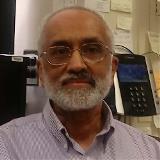
Dr Kannan Natarajan obtained his Ph.D. in Immunology from India and trained as a postdoctoral fellow at the Biozentrum, University of Basel, Switzerland, and at the University of Rochester, New York. Following a 2-year stint on the faculty of the Forsyth Research Institute in Boston, he joined the Laboratory of Immunology at the NIAID/NIH. Kannan’s research interests are the structural basis of ligand recognition by receptors of the immune system, especially receptors found on T cells and natural killer cells, and the molecular aspects of antigen presentation.
Simone Nicholson, PhD, DABT, Director Toxicology, Biohaven Pharmaceuticals

Simone is a Toxicologist at Biohaven Pharmaceuticals, developing the safety strategies for the innovative technologies that target neurological diseases. While at MedImmune/AstraZeneca, she supported the safety assessment of multiple biologics modalities at all stages of development. Prior to her time at MedImmune, Simone performed in vivo pharmacology and safety studies at Dyax, the antibody library company. She also established a suite of in vitro toxicology assessments to evaluate the toxicity of Epix Pharmaceuticals’ innovative imaging compounds. She came to the field of toxicology, serendipitously, when asked to conduct the studies that were the foundation of the DrugMatrix toxicogenomics database at Iconix Biosciences. She has a PhD in Immunology from Northwestern University and is board certified in Toxicology.
Divya Pathania, PhD, Senior Scientist, AbbVie
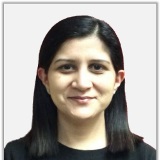
Divya Pathania, PhD is a Senior Scientist at AbbVie where she works on the development of in vitro immunogenicity risk assessment assays. Before joining AbbVie, she was leading a team of scientists for generating monoclonal antibodies at SLRC. She got her PhD in Pharmaceutical Sciences from the University of Southern California and was trained in preclinical drug discovery and development of novel anticancer small molecule compounds. She joined Massachusetts General Hospital and Harvard Medical School for her postdoctoral studies. During her postdoc she worked on developing several lab-based and point-of-care cancer diagnostic technologies and successfully applied those to clinical studies.
Jason Pennucci, Director, Bioanalytical Sciences, Moderna

Jason Pennucci is Director of Bioanalytical Sciences in the Bioanalytical and Molecular Assays Group at Moderna. Jason has >20 years’ experience in biopharmaceutical industry focused on regulated large molecule bioanalysis including immunogenicity, pharmacokinetics and pharmacodynamics. Jason is involved in several cross-industry working groups to align and recommend approaches for bioanalytical strategies for novel drug modalities.
Sandra Prior, PhD, Senior Scientist, National Institute for Biological Standards and Control (NIBSC, a Centre of The Medicines and Healthcare products Regulatory Agency)

Sandra Prior joined the National Institute for Biological Standards and Control (NIBSC) a centre of the Medicines & Healthcare Products Regulatory Agency (MHRA, UK) in 2015. She works as a principal scientist on the investigation of structure-function in relation to the safety and efficacy of monoclonal antibody products and on the development of bioassay standards for therapeutic monoclonal antibodies. She also contributes to vaccine immuno-monitoring and clinical assessment activities. She is a member of the European Directorate for the Quality of Medicines and HealthCare (EDQM) monoclonal antibody expert committee and the Official Medicines Control Laboratory (OMCL) monoclonal antibody testing group. She obtained her PhD from the University of Navarra (Spain) and moved to the UK, where she initially worked at NIBSC investigating safety and protective mechanisms of bacterial combination vaccines. In 2010, she joined Lonza Biologics (Cambridge, UK) working on bioactivity and immunogenicity assessment of biotherapeutics. Sandra has over 15 years of experience in applied immunology and in vitro cell-based assay development.
Amy Rosenberg, MD, Senior Director of Immunology and Protein Therapeutics, Epivax
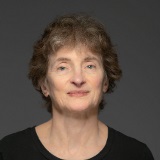
Amy Rosenberg is a physician-immunologist who, for 33 years regulated biologics including cellular and protein therapeutics and cell-device combination products at FDA. She had oversight over the approval of numerous protein therapeutic products. She recently moved to EpiVax, Inc as Senior Director of Immunology and Protein Therapeutics. During her time at FDA, she served as FDA consultant to the NIAID Immune Tolerance Network Steering Committee and was FDA representative to the ABIRISK Consortium. She is the principal author of “Guidance for Industry: Immunogenicity Assessment for Therapeutic Protein Products,” published in 2014.
Bonnie Rup, PhD, Biotechnology Consultant, Bonnie Rup Consulting

Bonita Rup is a biopharmaceutical development consultant, providing expert advice on bioanalysis, immunogenicity risk assessment, and related regulatory strategy aspects of biopharmaceutical development. Previously she was Research Fellow and lead for the Immunogenicity Discipline at Pfizer, Assistant Vice President of Protein Bioanalytics in Wyeth, and held various positions directing development and application of immuno-ligand binding assay technologies for PK, immunogenicity and protein impurity analysis, and other aspects of biopharmaceutical development. During her career, she has been involved in multiple regulatory filings during preclinical, clinical development and marketing approval of biopharmaceutical products. She has been a member of AAPS, EIP, European IMI ABIRISK consortium, and Biosafe; with these organizations, she has been a co-author for multiple publications related to monitoring immunogenicity and bioanalysis of therapeutic proteins. Bonnie received her B.S. from University of Massachusetts, Amherst, Ph.D. from University of Texas, Austin, and conducted postdoctoral research at Duke University and University of Rochester, NY.
Nancy Sajjadi, Independent Quality Consultant, Sajjadi Consulting

Nancy Sajjadi, M.Sc. is Founder and Principal Consultant of Sajjadi Consulting. She has over 30 years of experience in biopharmaceutical product development. She began her career as a bench scientist doing malaria vaccine research then joined a start-up company developing cell and gene using therapies for infectious disease, cancer and cell therapy applications. Her responsibilities included research, assay development, and quality control. In 2000, she left her position as Director of QC at Chiron Technologies Center for Gene Therapy to start her own consulting business. For over 20 years, Ms. Sajjadi has provided services to biopharmaceutical companies, contract laboratories, non-profit organizations, universities and US government agencies. She has assisted clients in the development, implementation and improvement of quality programs for a range of cutting-edge products and provides technical expertise in assay development, qualification and validation. Ms. Sajjadi has authored several articles pertaining to bioassays and viral gene therapy and has served on 5 advisory panels for the United States Pharmacopeia (USP). She enjoys teaching introductory courses in bioassay design, development and validation for non-statisticians. Her company has recently expanded services to include leadership development and executive coaching to guide organizations toward sustaining a culture of quality.
Vaishali Vinod Sarode, Senior Scientist, Vir Biotechnology

Vaishali is currently a Senior Scientist, at Vir Biotechnology and currently leads several late stage programs. Vaishali received her Master’s degree in Pharmaceutical Sciences from Northeastern University Boston MA. She has held various roles of increasing responsibility in Bioassay department at various companies such as Merk, Teva and Thermo Fisher Scientific. She has a total of 12+ years of experience and extensive knowledge in Bioassay development, optimization, validation, and transfers of cell-based assays.
Zuben Sauna, PhD, Director, Division of Hemostasis, CBER, FDA
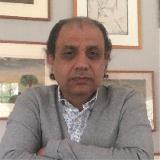
Zuben E. Sauna is a Principal Investigator and also a CMC Reviewer at the US Food and Drug Administration. His research interests lie in understanding the pharmacogenetic basis of the immune response to proteins used in therapeutic interventions as these affect efficacy and safety. His laboratory exploits a combination of computational, in vitro and ex vivo approaches to understand why some individuals and/or sub-populations develop immune responses while others do not. Work from his laboratory has been published in high impact journals such as Nature Biotechnology, Nature Medicine, Science, Science Translational Medicine and Nature Reviews Genetics. He received his Ph.D. from Poona University, India with subsequent training at the National Cancer Institute, Bethesda, USA.
Tim Schofield, Owner, Consultant, CMC Sciences LLC

Timothy Schofield is Owner & Consultant at CMC Sciences, LLC. Prior to joining this Tim worked at a Senior Advisor in Global Vaccines Technical R&D at GlaxoSmithKline, at MedImmune as Senior Fellow in Analytical Biotechnology, Arlenda, Inc. as Managing Director and Head of Nonclinical Statistics, at GSK in US Regulatory Affairs, and at the Merck Research Laboratories heading the Nonclinical Statistics unit, supporting research, development and manufacture of Merck pharmaceuticals, biologics and vaccines. Tim received a Bachelor of Science degree in Mathematics from Lafayette College, and a Master of Arts degree in Statistics and Operations Research in 1976 from the Wharton School of the University of Pennsylvania. Tim is a member of the USP Statistics Expert Committee and has participated in industry initiatives related to Quality by Design, analytical method development and validation, stability and specifications. He is the Chairman of the IABS Publications Committee where he is responsible for business and strategy related to the journal Biologicals.
David Scott, PhD, Professor of Medicine, Uniformed Services, University of Health Sciences
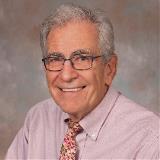
David W. Scott, Ph.D. is a Professor of Immunology in the Department of Medicine at the Uniformed Services School of Health Sciences, Bethesda, MD. An alumnus of Antioch College, he received his M.S. degree from the University of Chicago and Ph.D. from Yale University in 1969. Following a post-doctoral fellowship at Oxford University, he joined the faculty at Duke University in 1971, where he initiated his NIH-funded studies on immune tolerance mechanisms. In 1983, he was named Dean's Professor of Immunology at the University of Rochester, a position he held for 11 winters. Dr. Scott then became Head of the Immunology Department at the Holland Lab, American Red Cross, and moved to the University of Maryland Medical School in 2004. He assumed his current position in September 2010. Dr. Scott has contributed to over 200 research papers on several subjects on immunologic tolerance, and its application in autoimmune diseases, hemophilia and gene therapy. He is the author of two textbooks, including The Nature of Immunologic Tolerance, and recipient of a number of awards, e.g. Distinguished Service Award, from the American Association of Immunologists (2004), a Boerhaave Professorship at Leiden University in Holland (2006) and the 2009 Scientific Achievement Award from AAPS. Active in science education, Dr. Scott has been chair of Education committees of ASM and AAI. He has also served on the editorial boards of major immunologic journals, and as a member of numerous Study Sections.
Alessandro Sette, PhD, Professor, Vaccine Discovery & Infectious Disease, La Jolla Institute for Allergy & Immunology

I have devoted more than 30 years to understanding basic mechanisms of antigen recognition and immune responses, measuring and predicting immune activity, and developing disease intervention strategies against cancer, infectious diseases, autoimmune diseases and allergies. My early work, in the mid-80s to mid-90s, related to the demonstration that the main biological function of MHC is to bind epitopes. From those studies we further developed the notion that different MHCs have distinct binding specificities that can be used to predict epitopes. Since then, our group has defined motifs for over one hundred different class I and class II MHC variants expressed in from humans, and several other species. Throughout the last fifteen years I have been the PI of the Immune Epitope Database and Analysis Resource, freely available to the scientific community, which host immune reactivity data, and a series of bioinformatics algorithms to assist in the prediction and evaluation of immune responses. Our group also discovered and characterized how MHC variants can be grouped according to broad functional specificities (MHC supertypes), greatly facilitating epitope classification, characterization and understanding the basic rules of epitope-MHC interactions. Over the last 32 years, I have been continuously involved in hundreds of epitope identification studies, in cancer, autoimmunity, allergy, and infectious disease. By probing the IEDB, it can be established that I have been involved in identifying over 6,500 different epitopes.
Anurag Sharma, PhD, Gene Therapy Reviewer, CBER, FDA
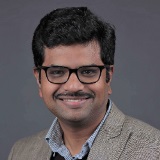
Anurag Sharma joined Food and Drug Administration (FDA)/CBER/OTP as a gene therapy product reviewer in October 2018 and conducts scientific review of CMC data to assess safety and quality of diverse investigational gene therapy products. He has been Acting Team Lead since August 2022. Anurag earned his bachelor’s degree in veterinary sciences and master’s in animal biotechnology from India before moving to the United States to pursue PhD in Molecular Virology from Purdue University at West Lafayette, IN. His doctoral research primarily focused on the development and characterization of novel adenoviral vectors for gene delivery applications. After his PhD, Anurag worked at Weill Cornell Medicine (WCM) at New York City as a postdoctoral associate and subsequently as an Assistant Professor of Research. At WCM, he continued his research to design innovative strategies to further improve adenoviral vectors and to develop vaccines against some of the pediatric respiratory infections with no approved vaccines.
Ethan Shevach, MD, Senior Investigator, Cellular Immunology, Laboratory of Immune System Biology, NIAID, NIH
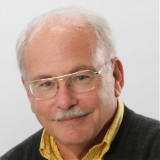
Dr. Shevach received his A.B. and M.D. degrees from Boston University. He is presently Chief, Cellular Immunology Section, Laboratory of Immunology. Dr. Shevach is the author of over 450 papers in the field of Immunology and his research interests over the years have included antigen presentation and processing, T lymphocyte activation, pathogenesis of autoimmunity, and most recently the role of regulatory T cells in immune responses. He served as Editor-in-Chief of the Journal of Immunology from 1987 to 1992 and as Editor-in-Chief of Cellular Immunology from 1996 to 2007. He is a member of the editorial boards of several journals including Immunity, Journal of Experimental Medicine, and Human Immunology.
Matthew Stephenson, PhD, Principal Statistician, Quantics Biostatistics

Matthew Stephenson is a Principal Statistician at Quantics Biostatistics where he has been advising clients on the statistical analysis of bioassays since 2019. He completed his PhD in Statistics in 2019, and was awarded the 2020 Canadian Journal of Statistics Award for his research on leveraging the graphical structure among predictors to improve outcome prediction. Following a stint as Assistant Professor in Statistics at the University of New Brunswick from 2020-2022, he resumed a full-time role at Quantics in 2023.
Jonne Terstappen, MD, PhD Candidate, Pediatric Infectious Diseases, Wilhelmina Children's Hospital

Jonne Terstappen, MD MSc, is a clinician-investigator at the Wilhelmina Children’s Hospital in Utrecht, The Netherlands. Her research focuses on RSV vaccinations and monoclonal antibodies for infants in low-middle income settings. She has recently received an award from the Royal Holland Society of Sciences and Humanities for her research and published in the peer-reviewed journals such as the Lancet Infectious Diseases. Jonne obtained her medical degree from the University of Utrecht after graduating cum laude in liberal arts and sciences from University College Utrecht. Jonne’s passion lies not only in advancing interventions against infectious diseases but also in the implications this research has on global health equity.
Will Thrift, PhD, Senior Artificial Intelligence Scientist, Genentech

Dr. Will Thrift is a Senior Artificial Intelligence Scientist in the Computational Sciences Department at Genentech. Will's PhD focused on developing deep machine learning methods for surface-enhanced Raman scattering sensors to enable applications in metabolomics. Will joined Genentech in 2019 where he focuses on developing deep machine learning methods for peptide-protein interactions in immunology. His state-of-the-art MHC class i model was the first machine learning model created by Genentech that has been used in a clinical trial to select drugs for personalized medicine.
Faye Vazvaei, Executive Director, Merck

Faye is currently Executive Director of the Regulated PK&ADA Bioanalysis Group of Merck Research Laboratories, West Point, PA, USA. In this role, Faye is responsible for the strategic and scientific oversight for method development, validation, and implementation of regulated bioanalytical assays to support quantification of drugs and metabolites as well as bioanalytical characterization of anti-drug antibodies, supporting a diversity of modalities including small molecules, peptides, and biologics utilizing chromatographic-mass spectrometry and ligand binding assays. Prior to joining Merck in April 2019, Faye was with Roche for seventeen years and held several positions, rising from Lab Head to Global Head of Bioanalytical Outsourcing, and Bioanalytical Oncology Group Head in the Department of Clinical Pharmacology and Bioanalytical R&D. Faye is highly engaged within the global bioanalytical community through various organizations including AAPS and IQ. She also serves on the International Council of Harmonization Bioanalytical Method Validation and Sample Analysis (ICH M10) Expert Working Group as the BIO organization representative.
Nicoline Videbaek, PhD, Principal Scientist, Novo Nordisk

Nicoline Videbaek is a Principal Scientist in the Department of Clinical Immunogenicity Analysis at Novo Nordisk A/S. She received her PhD in immunology from the University of Cambridge in 1999, and has over 20 years of experience in immunogenicity assessment for non-clinical and clinical studies. Nicoline has developed and validated immunogenicity assays, including in vitro neutralizing antibody assays, for peptide-based, monoclonal antibody-based, and hormone-based drugs. She is a member of the EBF nAb workgroup and offers advice on immunogenicity risk assessments, in addition to teaching in an immunogenicity course.
Steven Walfish, Owner, Statistical Outsourcing Services
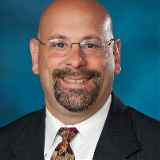
Mr. Walfish is Principal Science & Standards Liaison at United States Pharmacopeia (USP) responsible for the Statistics Expert Committee. Prior to this role Mr. Walfish was Principal Statistician at Becton Dickinson in Franklin Lakes, NJ responsible for supporting continuous improvement efforts and process development for worldwide operations. Mr. Walfish has held roles at GE Healthcare, Human Genome Sciences and Chiron. Steven was President of Statistical Outsourcing Services, a consulting company that provides statistical analysis and training to the FDA regulated industries. Mr. Walfish brings over 30 years of industrial expertise in the development and application of statistical methods for solving complex business issues. Steven has experience applying statistical methods to analytical method verification and validation and stability analysis. Mr. Walfish holds a Bachelors of Arts in Statistics from the University of Buffalo, Masters of Science in Statistics from Rutgers University and an Executive MBA from Boston University.
Yow-Ming Wang, PhD, Associate Director for Biosimilars and Therapeutic Biologics, CDER, FDA
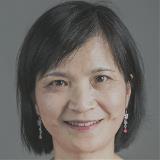
Dr. Yow-Ming Wang is currently the Associate Director for Biosimilars and Therapeutic Biologics as well as Director of Therapeutic Biologics Program in the Office of Clinical Pharmacology at the FDA. From 2011 to September 2017, Dr. Wang served as the team leader of Biologics Team in Division of Clinical Pharmacology III; her team was responsible for reviewing submissions of biological products in three clinical divisions. Prior to joining the FDA, she worked in the pharmaceutical industry with experience in small molecules and large molecules. From 2004 to 2011, she worked at Amgen where she supported multiple biologic products in clinical development, in registration phase, and in post-marketing phase. Before Amgen, she supported small molecule drug discovery and development for 11 years at Vertex Pharmaceuticals and at Parke-Davis Pharmaceutical Research. She received her PhD degree from The Ohio State University College of Pharmacy with a research focus on Pharmacokinetics and Biopharmaceutics.
Weifeng Xu, PhD, Director, Bioanalytical, Merck

Weifeng has been in the field of immunogenicity for biologics for about 10 years. He had developed cell-based neutralization Ab assays for multiple key product at BMS including Opdivo and Yervoy. He is an active member in AAPS NAb work group as well as EBA NAb team; he is also co-leading the NAb assay drug tolerance subteam at AAPS. After join Merck at the end of 2018, Weifeng is now leading Cell Assay group within PPDM Regulated Immunogenicity to develop neutralizing assays for both biologics and vaccines.
Jeff Zhu, PhD, Senior Investigator, Laboratory of Immune System Biology, NIAID, NIH

Dr. Zhu received his bachelor’s degree summa cum laude from the department of biology, NanKai University, Tianjin, China, and his PhD in biochemistry and molecular biology from the Shanghai Institute of Biochemistry (now known as Shanghai Institute of Biochemistry and Cell Biology), Chinese Academy of Sciences. He joined the Laboratory of Immunology (LI) at the National Institute of Allergy and Infectious Diseases (NIAID) first as a visiting fellow and then as a staff scientist studying CD4 T cell differentiation. He was then appointed as an Earl Stadtman investigator at the NIH, and now he is a tenured senior investigator in the Laboratory of Immune System Biology, NIAID. The focus of Dr. Zhu’s lab is to investigate heterogeneity and plasticity of CD4 T helper (Th) cells and innate lymphoid cells (ILCs) during normal and pathological immune responses at cellular and molecular levels.
Gregory de Hart, PhD, Associate Director, BioMarin Pharmaceutical

Dr. Gregory de Hart, PhD, is an Associate Director of Assay Diagnostics and Lifecycle Management in the BioAnalytical Sciences group at BioMarin. Greg received his BS from University of Washington and PhD from Northwestern University, with a postdoctoral fellowship at the University of California, San Francisco. Currently as the lead for diagnostics within Research and Early Development at BioMarin Pharmaceutical, he is responsible for the formulation and execution of strategy, development, and clinical evaluation of diagnostic assays across BioMarin’s gene therapy and drug programs, and serves as the primary scientific contact with diagnostic development and manufacturing partners.

